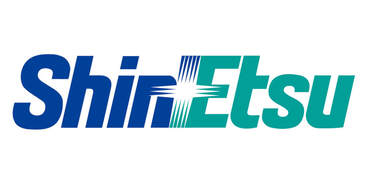Uncovering Japanese Gems: 3 Strong Companies
2 Feb 2023 | Stock Insight
We have been attracted to Japanese equities for some time due to their robust balance sheets and notable improvements in governance. More recently, Japanese companies have weathered the economic headwinds to outperform global peers significantly. This is despite the Japanese Yen falling relative to the US dollar and in our opinion, becoming ludicrously undervalued.
Many Japanese companies we consider to be “true technology companies”. They are in the business of selling technology by using applied scientific knowledge to solve real problems. These companies spend significant sums on research and development to build competitive advantages based on intellectual property and manufacturing leadership. This differs from the likes of big tech in the United States. For example, Google-owner
Alphabet (NASDAQ.GOOGL) might be classified as a technology business, however realistically it is a cyclical advertising company. Investors should be mindful of industry classifications, as they can provide a false representation of a business’s underlying business model or sector.
Nippon Gaishi Kaisha (NGK) translates to Japan insulator company in English. As an aside, many companies in Japan begin with either Nippon or Nihon, which means Japan in Japanese. NGK’s core technical expertise is in ceramics, which is known for its durability, non-conductivity and heat resistance. Historically the business provided ceramic insulators that safely delivered electricity but has since moved into new markets such as automobiles and semiconductors. NGK is the market leader in ceramic substrates and filters, which detoxifies harmful exhaust emissions and particulate matter from motor vehicles.
NGK is over 100 years old, has weathered multiple economic cycles and continues to innovate. The business is now moving away from fossil-fuel vehicles and towards energy storage and digital applications. Recent new products include the first megawatt-class NaS (sodium-sulfur) battery and an ultra-compact lithium rechargeable battery used in small electronics called EnerCera.
The business has over 7,800 patents filed globally against its intellectual property. It also spends 5 per cent of its revenue on research and development annually, with 70 per cent dedicated to future-facing industries. It’s built customer relationships over decades and is embedded deeply within end products. Regarding valuation, NGK trades at a 17 per cent discount to its book value and on an earning multiple of 8.5.
Amada is a large manufacturer of metal working machinery in addition to providing automation systems, software and services. The company sells equipment for sheet metal fabrication, precision welding, cutting, grinding and press automation. This machinery is then used to build a wide range of end-use products including elevators, smartphones, bridges and road signs.The company has developed fibre laser machines that cut more accurately and safely than incumbent carbon dioxide laser machines. It also uses around a third of the energy, and while more expensive upfront, the operating costs of fibre machines are significantly less. Sectors such as manufacturing, aerospace and automotive are expected to drive demand for metal fabrication over the medium term. Amada will also benefit from falling population demographics in countries such as China, where machines will be needed to replace manual labour.
The business has offices and operations around the globe, with 61 per cent of sales from international markets. Amada has a conservative balance sheet, with a third of its market capitalisation in net cash. Valuation-wise, the company is trading on an earnings multiple of 10.5 and at a 27 per cent discount to its book value.
Shin-Etsu is the fourth largest chemical manufacturer globally, providing products to various sectors including; construction, healthcare, semiconductors and pharmaceuticals. It is the world’s largest supplier of PVC, a durable and hard plastic used in window frames, piping and roofing. Shin-Etsu is also the number one provider of semiconductor wafers, a thin slice of material used in semiconductor fabrication.
The company has built decades of proprietary insights and relationships with customers. It also has a vast international network of manufacturing facilities and intellectual property. New innovations include silicon monoxide anode materials for high-capacity and high-power lithium batteries in anticipation of the shift to electric vehicles. It has also developed equipment that can transfer micro-LED chips quickly and is now a one-stop shop for original equipment manufacturers.
Shin-Etsu is highly profitable, with an operating margin of 32 per cent. Moreover, its return on invested capital is 27 per cent and hasn’t fallen below 15 per cent over the past five years. Shin-Etsu has a conservative balance sheet with nearly a quarter of its market capitalisation in cash. The company trades on a price-earnings ratio of 10 and analysts have continued to upgrade earnings estimates over the past year.




